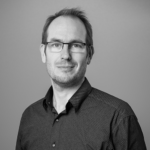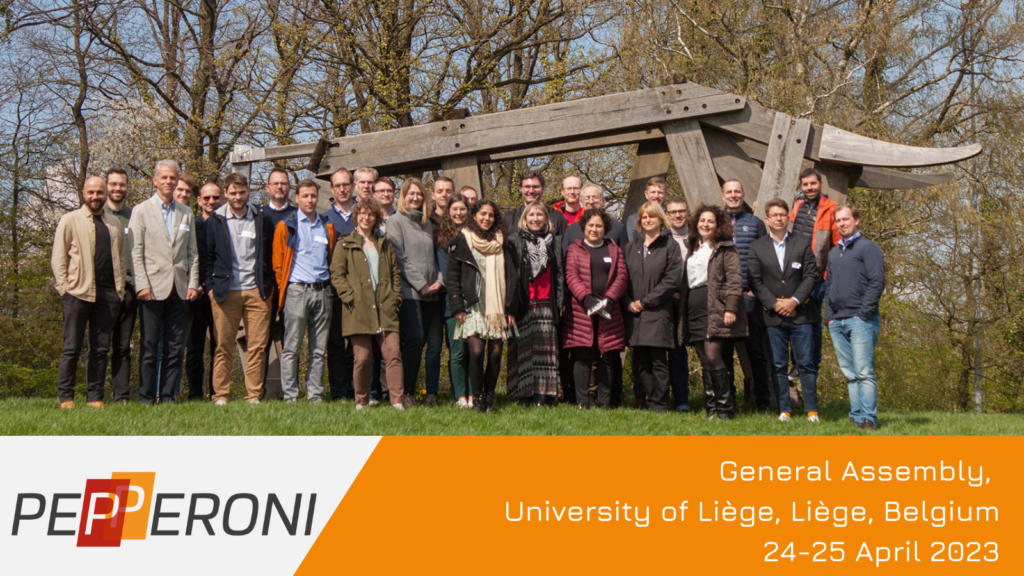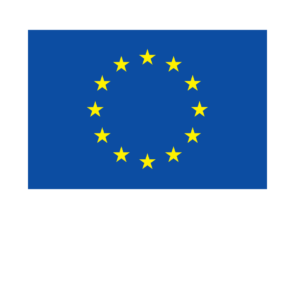PEPPERONI, an EU-funded project developing a pilot line for perovskite/silicon solar tandem cells and modules, held its General Assembly (GA) on 24 and 25 April. The meeting was hosted by partners from the University of Liège, Belgium and brought together more than 30 experts from the 17 partners from PV industry, research, and academia.
During the two-day meeting, the consortium members presented their latest progress and discussed the challenges in meeting the ambitious objectives of the project. The official part of the PEPPERONI’s GA kicked off with a warm welcome from Prof. Angélique Leonard (University of Liège) followed by an overview of the project’s status delivered by Dr. Fabian Fertig (Qcells) and project organisation presented by Dr. Johannes Ripperger (accelopment Schweiz).
The sessions of the first day reflected PEPPERONI’s interdisciplinary approach and included fruitful discussions on tandem cell process and module integration (WP3, WP4), scalability of materials (WP6), reliability of tandem technology through testing and outdoor monitoring (WP7) as well as economic, environmental, and societal aspects of the PEPPERONI’s solution (WP8).
The individual presentations were followed by a joint session on cell and module processes, where tandem cell process integration, module integration of high-efficiency tandems as well as improvement and scalability of materials were discussed. The consortium takes into consideration the full supply chain and the origin of raw materials used in the production of PEPPERONI solar tandem cells and modules: “The LCA results will help us understand the environmental impact of our project and identify areas for improvement.” – said Sabela Teixeira Taboada in her presentation. “We are committed to developing a sustainable solution for renewable energy” – continued Prof. Bernd Stannowski, the project coordinator from Helmholtz Zentrum Berlin, Germany.
On the second day, the sessions covered presentations on tandem solar cell and module pilot line (WP2), including manufacturing tools (WP5) followed by the overview of communication, dissemination, and exploitation tasks (WP9).


The discussions during the meeting focused on the importance of scalability, low manufacturing costs and high reliability of PEPPERONI’s tandem technology. In addition to efficiency, the reliability of the technology in outdoor conditions was highlighted as a key aim of PEPPERONI. “Our goal is not only to develop an efficient solution but also to ensure that it is low-cost and reliable,” said Dr. Fabian Fertig. For achieving this PEPPERONI facilitates a close collaboration of equipment and material supplies with R&D institutes and Qcells, the PV module manufacturer.
“We are confident that, through our collaboration, we will be able to achieve our goals and enable a successful pilot line for perovskite/silicon solar tandem cells and modules,” Prof. Bernd Stannowski added, who coordinates the project jointly with Dr. Fabian Fertig. Both expressed their satisfaction with the progress made so far and highlighted the importance of the consortium’s collaboration.
“Our project is at the forefront of developing a new generation of solar modules that have the potential to revolutionize the PV industry”.
The next PEPPERONI GA is scheduled to take place in autumn this year as an in-person meeting making it again an excellent forum for the consortium members further exchange their work progress and discuss the next steps.



